Jessica Pryde is a member of that rare breed that grew up in Washington, DC, but is happily enjoying the warmer weather of the desert Southwest. While she is still working on what she wants to be when she grows up, she’s enjoying dabbling in librarianship and writing all the things. She's the editor of Black Love Matters: Real Talk on Romance, Being Seen, and Happily Ever Afters, and her fiction has been published by Generous Press. She can be found drowning in her ever-growing TBR and exclaiming about romance on When in Romance, as well as on social media. Find her exclamations about books and internet ridiculousness on BlueSky (JessIsReading) and instagram/threads (jess_is_reading).
Sarah Rector was 11 when oil was discovered on her allotment in Oklahoma, making her extraordinarily wealthy. But Black wealth in the Jim Crow South came at a cost. Her story is one of sudden riches, national attention, and the painful realities of race and power. Read or listen to this remarkable short story by award-winning author Tonya Bolden, with Prime & Kindle Unlimited.
When it comes to Black women in history, we’ve been limited when it comes to learning about who they were, what they did, and how best to remember them. There have been Black women at the center of history since time immemorial, so obviously, I can’t tell you about all of them. But the women highlighted in the books below are a combination of people whose names you should definitely know and people who have been skipped over in the conversation. With one exception, these women all existed in the Western world of white supremacy and imperialism and managed to establish themselves in the context of that world. Whether in politics, resistance, or entertainment, all of these women made strides not just for themselves but for the Black community as a whole, whether they were residents of the United States or elsewhere.
While I’ve gathered some history books, biographies, and memoirs about Black women with varying levels of notoriety, there are some really fascinating Black women from history who don’t have much nonfiction written about them beyond a Wikipedia page. So I’ve also gathered a short stack of novels about Black women from history, in which real life has been fictionalized, but a great deal of information still relies on fact. They’re a good jumping-off point to your deep dive into encyclopedias and university collections.
Once you’ve checked out all of these amazing Black women, think about how many others in the past and the present you might not be aware of, and start exploring on your own!
History Books About Black Women
The Woman Who Would Be King by Kara Cooney
Many of us went through an Ancient Egypt phase as kids (and some of us never grew out of it). How much of that time was spent learning about Hatshepsut? If you got more than a few minutes, you were lucky! Hatshepsut, the daughter of a general, was a master of strategy who maneuvered her way into being the second woman in Egypt to be named a Pharaoh. Kara Cooney is a storied Egyptologist who has done several deep dives through the thousand-year-long Egyptian civilization, and her writing is incredibly approachable, no matter your starting point. (Note: while some people might draw a line between Southwest Asia and North Africa identity and Sub-Saharan African identity when it comes to who might be considered “Black”, I attribute the title to anyone with full ties to the continent.)
Never Caught by Erica Armstrong Dunbar
Ona Judge was born enslaved. As a member of George and Martha Washington’s household, she spent the first 22 years of her life as a person considered property. But she took advantage of her relative freedom (of movement) during time spent in Philadelphia to set out on her own in search of true freedom. Dunbar digs into the lives of Ona and the Washingtons, details the manhunt that followed Ona’s escape, and highlights the endurance of a woman who refused to return to captivity.
(If you like Dunbar’s style, you might want to pick up She Came to Slay, her incredibly accessible book geared towards young adults about the life and triumphs of Harriet Tubman.)
Crusade for Justice by Ida B. Wells
Originally published in 1970 and revived by the University of Chicago Press in 2020, this memoir is a necessary read. In a time when public lynching might not always include rope, but is just as prominent, reading the words of the woman at the center of anti-lynching efforts in the earlier part of the 20th century can show us how far we have yet to go. Even so, her life and work will be inspiring to any reader, and the depth at which she was at the center of the earliest stages of the 20th-century Civil Rights Movement (before it was called as much) might be surprising.
Fearless and Free by Josephine Baker
There are a lot of people who might know a bit about Josephine Baker. She wore a banana belt and maybe helped out during World War II. But hearing about her life in her own words reveals a great many layers. Even the circumstances of this memoir reveal something interesting about racism in publishing: while published in French in 1949, it wasn’t translated into English or published in the United States until this year. 2025. It took 75 years for American publishing to realize that the life of Josephine Baker in her own words was worthwhile to publish. There is some criticism about the text, including that Baker never really digs below the surface of her experiences; not surprising when there was still so much turmoil as she was telling her story to her French transcriber. Either way, it’s a fascinating look into the private life of a public figure.
Marsha by Tourmaline
If you know her name at all, you might know Marsha P. Johnson as the trans woman who threw the first brick at Stonewall. But that’s neither the beginning nor the end of her story as a revolutionary. Trans activist and author Tourmaline uses primary resources, public records, and interviews with friends and family to outline Marsha’s full and tragic life. Marsha was an entertainer, a caretaker, and a leader in the trans rights movement. For so many of us, the history of queer people in the US jumps straight from Stonewall to the HIV/AIDS epidemic, and this book shows us the little bits of greatness that came in the years between.
Historical Fiction About Black Women
While the next set of books is written as fiction, the authors spent no less time researching to reveal the lives of the women these novels explore. As I mentioned, in many cases, information about their lives can only be found in special collections and footnotes. These authors thought their stories were worth telling, even if it meant filling in the gaps with fiction.
Queen of Exiles by Vanessa Riley
Marie-Louise Christophe was the first queen of the free and independent Republic of Hayti. She and her husband, Henry I, did their best to lead the newly formed nation, but debt and discontent led to Henry’s overthrow, leading Marie-Louise to escape to Europe. Riley explores her life there as she establishes herself and her daughters as royals.
Vanessa Riley has done some amazing work telling the stories of lesser-known Black women in history. Each book is a doorstopper, but you’ll turn pages like the wind.
The Unexpected Diva by Tiffany L. Warren
What do you know about the first Black opera diva in the United States? Elizabeth Taylor Greenfield was born enslaved but manumitted as a child when her adopted mother moved the family north and became a Quaker. Discovering early on that she had a talent for music, Greenfield became a highlight of the Northern music community, often called the Black Swan. This novel follows her rise to fame and the horrors that still persisted regardless of her free identity.
Carolina Built by Kianna Alexander
Josephine Leary is another one of those enterprising women who fell prey to history’s erasure. Born enslaved, she was able to come of age as a free woman during the Reconstruction. Having developed an interest in real estate, her dreams were often pushed back due to the day-to-day needs of family rearing and care. But eventually, she began buying property, leading to a small but remarkable business empire in the town of Edenton, North Carolina.
Harlem Rhapsody by Victoria Christopher Murray
While this book is probably the most prominent of the novels listed here, you might be unaware that it’s about a real woman: Jessie Redmond Fauset, the literary editor of The Crisis magazine, who discovered and elevated the voices of several of the most well known writers of the Harlem Renaissance and a novelist in her own right, even though her own writing continues to be overlooked. This novel also digs into her torrid affair with WEB DuBois, founder and editor of The Crisis and a household name in Black history.
The Queen of Sugar Hill by ReShonda Tate
While there is a biography of her available (Hattie McDaniel: Black Ambition, White Hollywood), this novel is a much more recent exploration of the life and troubles of Hattie McDaniel, the first Black woman to receive an Academy Award. Her work on Gone With the Wind was lauded by Hollywood but frowned upon by organizations like the NAACP, and while many people only saw their star rise after winning awards, Hattie found herself unable to find work. This novelization of her life is by a master of storytelling and will drop you into a setting that is only superficially discussed in general conversations about Black history.
If you want to read more stories about real people, make sure you’re subscribed to the True Story newsletter!



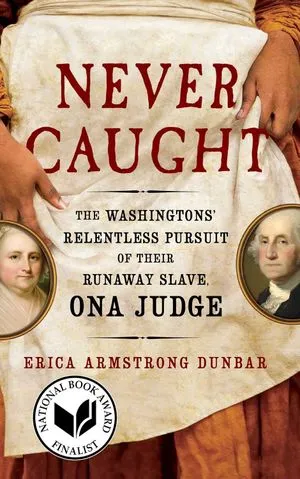
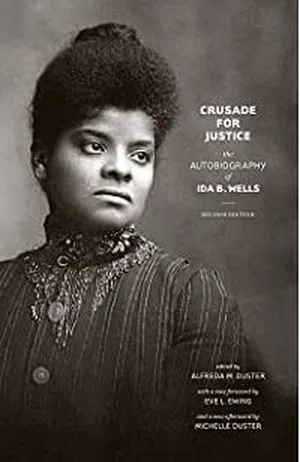
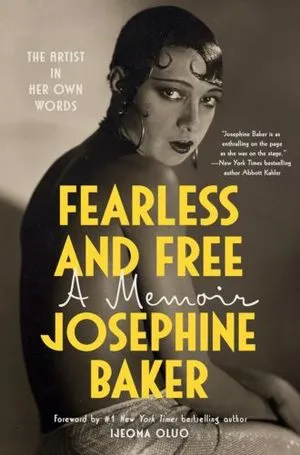
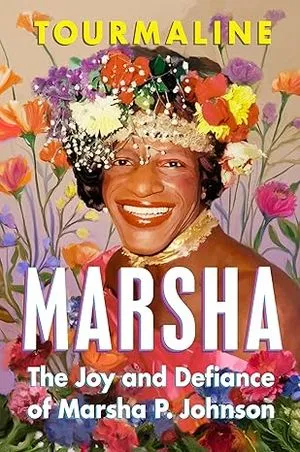
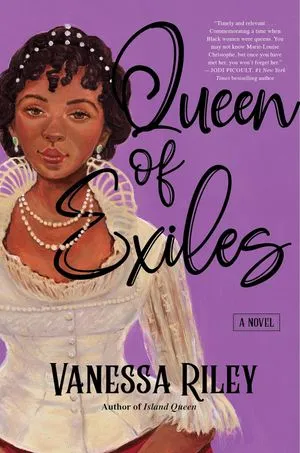
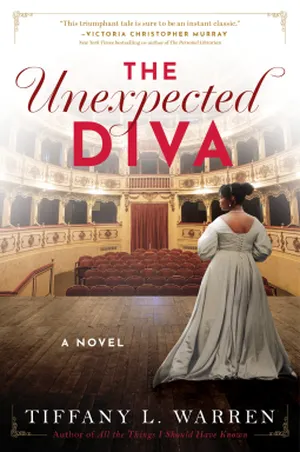

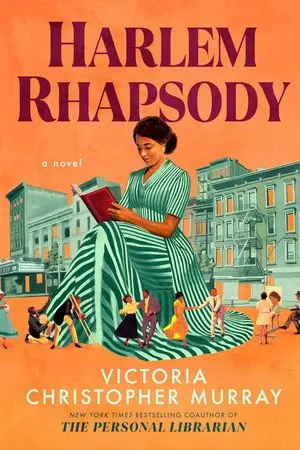
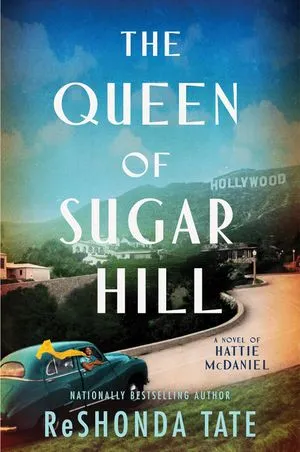












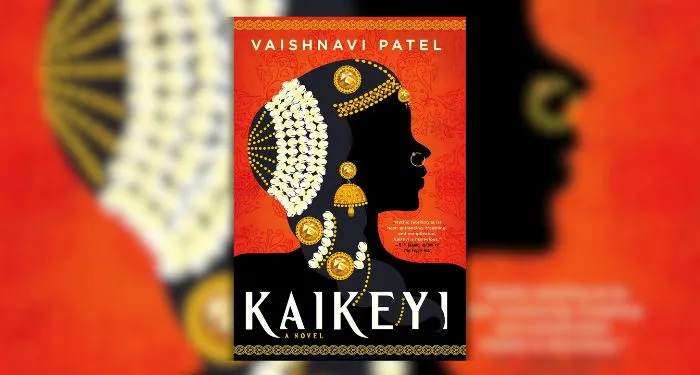


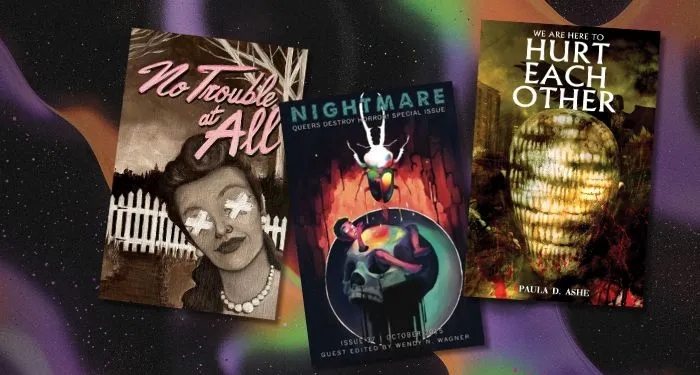


 English (US) ·
English (US) ·